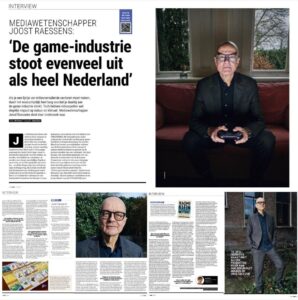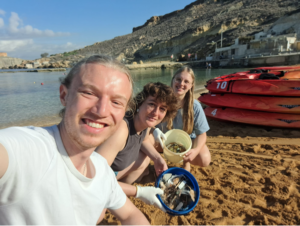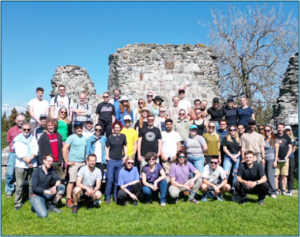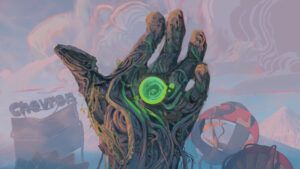Games and Sustainability
Contemporary games are increasingly used not only to entertain, but also to persuade people, raising their awareness and changing or reinforcing their attitudes and behavior for the good of society. Researchers within this theme ask how sustainability games can address today’s environmental challenges; how they facilitate social change on a micro, meso and macro level; how they construct playful forms of civic engagement. Research also focuses on the environmental impact of game production, distribution and reception.

In the media: “The game industry emits as much as the whole of The Netherlands”
In the newest issue of KIJK magazine, UU media researcher Joost Raessens was interviewed on his work in the area of games and sustainability.

Shape2Gether: Experiencing the Malta summer school
Hello again! We are five student from Utrecht University who for the past few months have been participating in the Erasmus+ Project Shape2Gether, an initiative to teach students how to communicate complex information relating to climate change using new media technologies. This piece is a retrospective of the second ‘summer school’ on the islands of Malta.

Game Research @Dutch DiGRA 2024 Symposium
On November 21, game scholars from all over The Netherlands and well beyond gathered at Erasmus University for the Dutch DiGRA 2024 Symposium. Many researchers from Utrecht presented their projects.

Ecogame Playtesting Series 2024/25
In September 2024, the Network for Environmental Humanities (NEH) and the Utrecht Game Lab are launching a new series of events playtesting and discussing ‘ecogames’: or games that engage with the environment and with the climate crisis.

CFP: Dutch DiGRA 2024 Symposium
Our colleagues at Erasmus University are hosting a Symposium for the Dutch chapter of the Digital Games Research Association (DiGRA). The full CFP should prove interesting for all game researchers at UU.

Shape2Gether: Experiencing the Trondheim Summer School
In May of 2024 five UU students went for a week to Trondheim, Norway, to participate in the first of three summer schools as part of the Erasmus+ project Shape2Gether. This is their report of the summer school.

“Change makers don’t understand games; game makers don’t understand change”
Read the Anticiplay blog post written by Joost Vervoort about why policy makers, activists and game developers should "enter each other's worlds".

Two Assistant Professors in Screen Media
The department of Media and Culture Studies has published two job openings for Assistant Professors which might be interesting for those engaged in research fields related to games and play: Screen Media.

Franchise Hacking – Magic: the Gathering
'Franchise hacking’ within Magic: The Gathering (MtG) means to creatively alter game elements to embed urgent real-world ecological narratives into the game’s design.

STRATEGIES: Sustainable Transition for Europe’s Game Industries
Learn everything you need to know about STRATEGIES , the recently started research project, spearheaded by Utrecht University.
